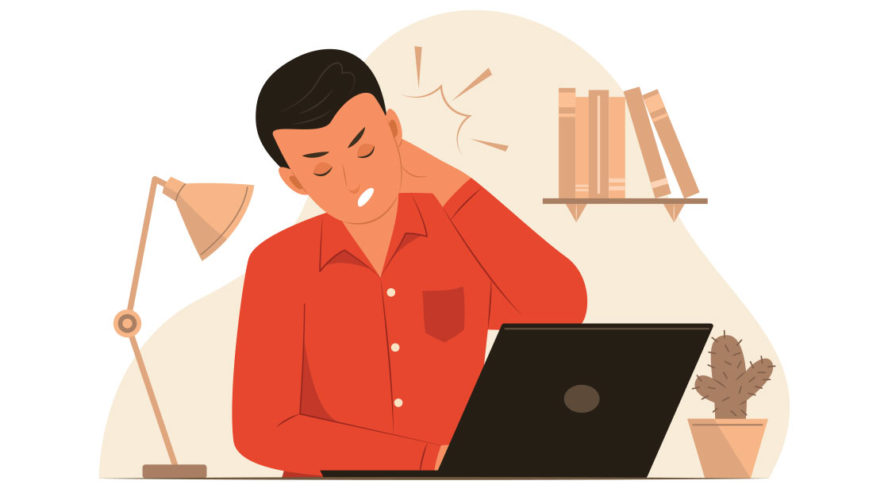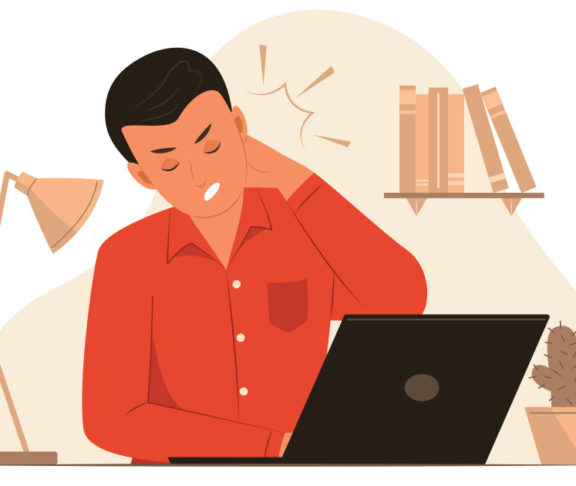The chairman of the North American Spine Society’s public affairs committee offers advice to dental and other healthcare professionals suffering on the job.
It’s not unusual for most adults to experience back or neck pain at some point in their lives. However, certain careers put individuals at greater risk of developing musculoskeletal disorders.
“Up to 80% of dentists report chronic back or neck pain, a significantly higher number than that reported by other healthcare groups such as physicians and pharmacists,” says Missouri-based neurosurgeon Alex Michael, M.D. “Chronic pain is a source of significant loss of productivity, lost income, and, ultimately, long-term personal and professional dissatisfaction.”
Michael, who currently practices at Mercy Clinic Neurosurgery in Saint Louis, says back pain can be costly in more ways than one. “In 2003, an estimated loss of $65 million was attributed to canceled patient appointments when oral health professionals couldn’t work due to musculoskeletal pain. Dentists with musculoskeletal disorders, particularly low back pain, were found to be more likely to leave the profession altogether.”
It isn’t complicated
Musculoskeletal disorders typically result from repetitive motion, heavy lifting, and/or improper posture. Dentists typically spend most of their work days in awkward positions that fatigue and damage the joints, muscles, and bones of the spine.
“In the lower back, unsupported sitting increases the pressure on the spine 40% more than standing. When sitting in forward flexion and rotated position, the pressure increases to 400%,” says Michael. “Repetitive leaning toward patients during exams and procedures can result in strain and overexertion of the lower back extensor muscles while weakening the deep abdominal muscles, leading to an imbalance in the core support structures.”
Pain is particularly prevalent among dental professionals who work in direct vision, without an assistant, or while standing. Those who don’t follow a fitness regimen are also more likely to have problems.
Making adjustments
To help prevent chronic pain, dentists should make an effort to stretch before and during work. Taking a break in the middle of the day can also be beneficial, along with performing procedures with good posture and avoiding repetitive motions.
“To ensure appropriate ergonomics, sitting height should be adjusted to keep the shoulders over the hips and maintain the natural lordotic posture of the cervical and lumbar spine,” says Michael. “Lumbar supportive stools and loupes with an appropriate working distance and sufficient angle of declination can drastically reduce muscle fatigue.”
Michael says there have been many advances in back pain management and spine surgery over the years.
“Initial medical treatment consists of nonsteroidal anti-inflammatory medications, muscle relaxants, and neuropathic drugs. A course of physical therapy may be prescribed to increase the functional parameters through stretching and core strengthening, along with a combination of traction, gentle massage, ice and heat therapy, ultrasound, or electrical muscle stimulation. lnterventional procedures can help identify and treat the source of musculoskeletal pain with epidural steroids, trigger point injections, or radiofrequency ablation.”
When all else fails
If conservative treatment for low back pain doesn’t provide relief, or neurologic symptoms are worsening or severe, surgery may be the next step.
“Other signs or symptoms that should prompt surgical consideration are difficulty ambulating, controlling your bowel or bladder, or progressive weakness,” says Michael.
While healthcare workers are more prone to back and neck problems, Michael says they shouldn’t resign themselves to a lifetime of discomfort.
“Overall, back pain may appear to be an inevitable occupational hazard, but with preventative measures and appropriate conservative care, dental professionals can obtain higher personal well-being and overall health while maintaining career longevity.”

